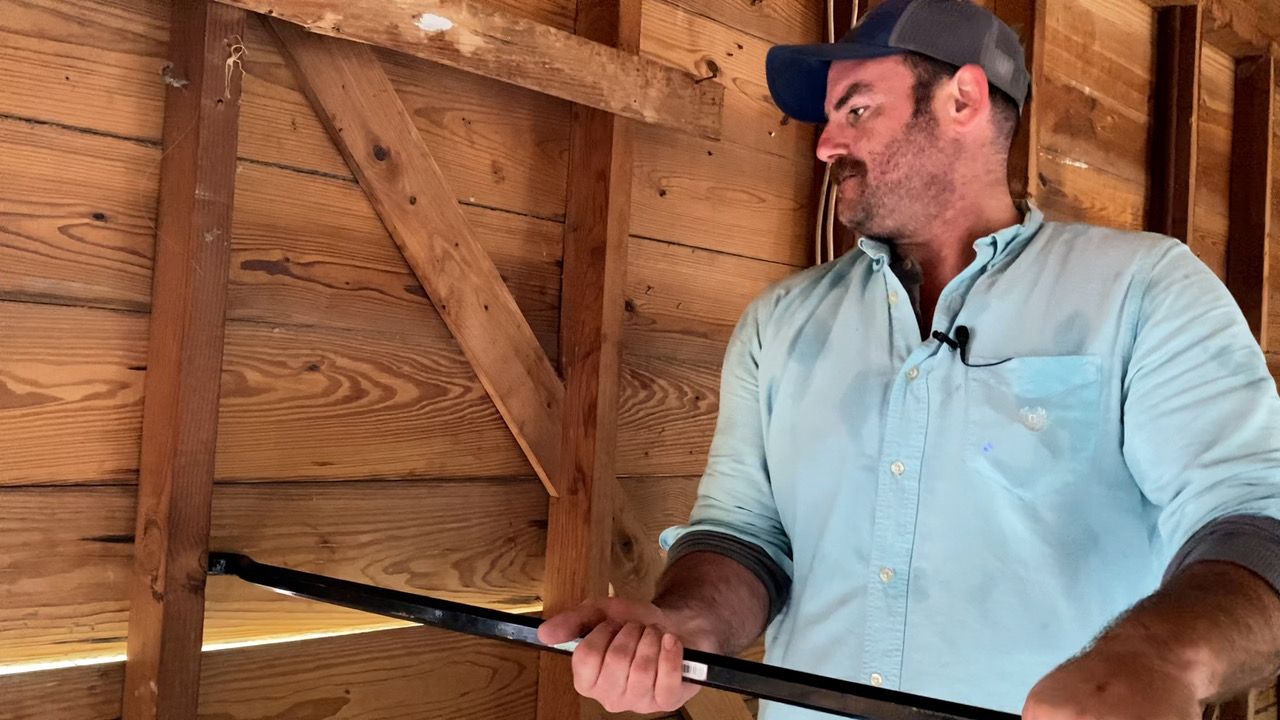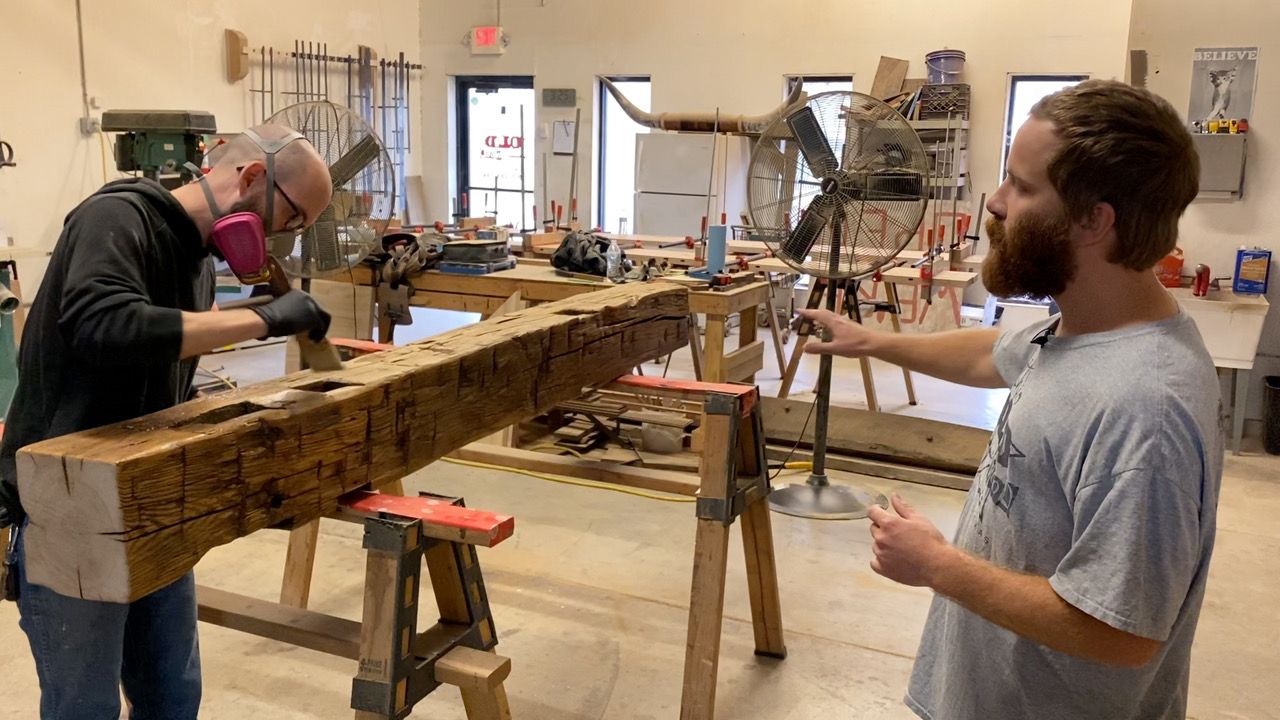AUSTIN, Texas — "If I get one out, then the others will come,” Jeffrey Spector said.
This Old Wood president and carpenter sees the beauty in second chances.
"It’s always been a hobby of mine and I just love the way it looks and I love history, so it led me into that,” Spector said.

In a state that felt a $41.6 billion impact from the forest sector, reclaimed wood projects make up a very small portion.
"There’s a market for all of it,” Spector said. "A lot of this stuff ends up being something different than what it was."
The custom furniture, flooring and lumber company has gained in popularity since its inception, and has even been featured on prominent national television programs such as "Barbecue Brawls" and "Treehouse Masters."
"It’s nice to be recognized and we’re going to keep doing it,” Spector said.
While the lumber industry has worked to conserve more than they cut, Texas A&M Forest Service believes companies revitalizing natural resources fill a necessary role.
"It’s in houses, buildings, warehouses and barns that are no longer used,” Forest Analytics Department Head Aaron D. Stottlemyer said. "Even though that wood is old, it's still structurally sound and could have second life.”
Not only is there a market for these restoration products, but the effort of repurposing these materials also has a positive environmental impact as well.

"This wood would have gone to a landfill where it rots and generates methane, which is 10 times more harmful gases than CO2,” Spector said.
At their workshop in Pflugerville, there’s a history lesson to be shared in every beam.
"Some of the wood dates back from the 19th century to pre-Civil War,” manager and carpenter Zack Willis said. “We want to be able to recycle it and keep the cycle going, hopefully."
Texas owns some of the fastest growing cities in America, so it’s never a bad thing to hold onto an environmentally-friendly piece of the past.
"It’s definitely a nice feeling to have a concrete thing we’re contributing,” Willis said.



